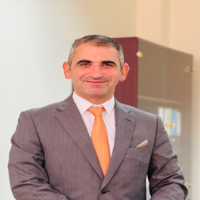3rd Global Summit on
Nursing and Midwifery
May 20-21, 2026 | Barcelona, Spain

Address: Avinguda Del Maresme 78 Ronda De Dalt Exit 15, 08940 Comellà de Llobregat, Barcelona, Spain
Nursing 2026

Al Al-Bayit University, Jordan
Abstract:
Cancer,
once primarily viewed as an acute illness, has increasingly become a chronic
condition as advancements in treatment extend patients' lives. This shift has
led to the need for cancer survivors to adopt self-management strategies to
manage the physical and emotional effects of the disease. Cancer survivors,
particularly in low- and middle-income countries, face unique challenges in
self-managing their conditions. This study aimed to explore the home
self-management experiences of adult Omani cancer survivors. A qualitative
exploratory design was used, employing semi-structured interviews with 36 Omani
cancer survivors. The sample consisted predominantly of women (66.7%), with an
average age of 53.1 years. Most participants (52.8%) were diagnosed with early-stage
breast cancer. Thematic analysis revealed that participants demonstrated a
strong sense of autonomy, frequently making independent decisions regarding
their care. Faith emerged as a critical coping mechanism, providing emotional
resilience, while family support was central to both practical and emotional
care. This reliance on family reflects cultural differences compared to Western
models, where formal support services are more common. Technology, particularly
social media, played a mixed role in self-management; younger survivors used it
for health information, while older participants were more skeptical and
preferred to rely on healthcare providers. The self-management strategies of
Omani cancer survivors are deeply influenced by cultural, familial, and
religious factors. While autonomy and faith are central to their coping
strategies, there remains a need for culturally tailored self-management
programs that integrate traditional support systems and modern healthcare
resources, including digital literacy education. This study underscores the
importance of recognizing cultural contexts in developing effective cancer
survivorship interventions.
Biography:
Dr. Mohammad Al Qadire is a Professor at the Faculty of Nursing, Al Al-Bayt University, Jordan. He specializes in oncology nursing, palliative care, and cancer pain management, with a focus on improving patient outcomes. Dr. Al Qadire has published over 125 articles and is recognized among the top 2% of scientists globally.
